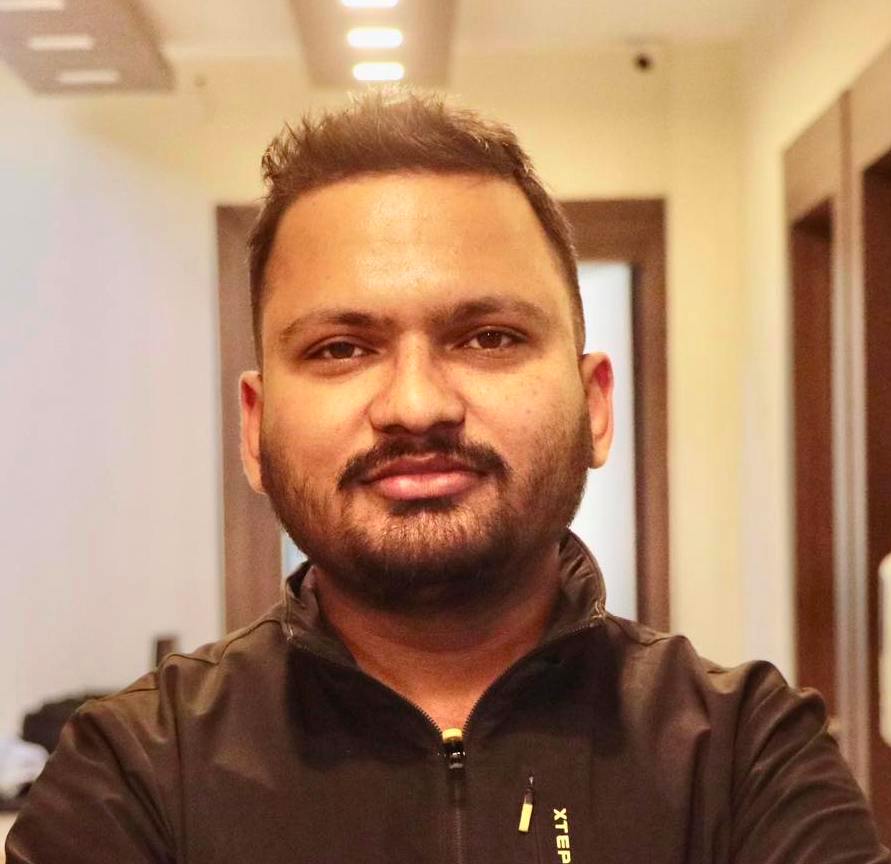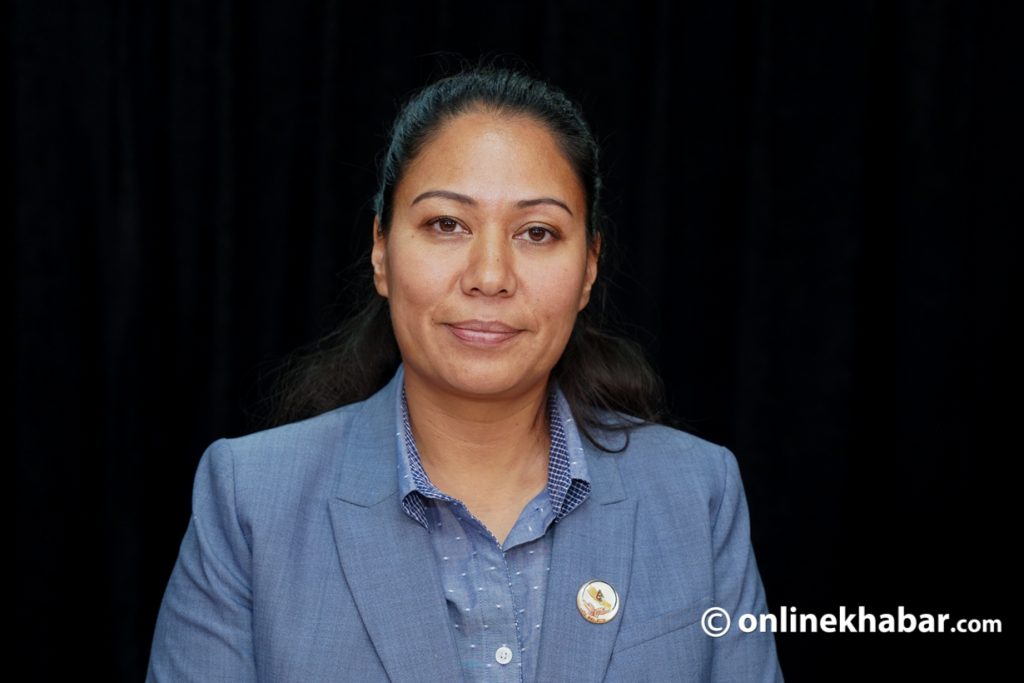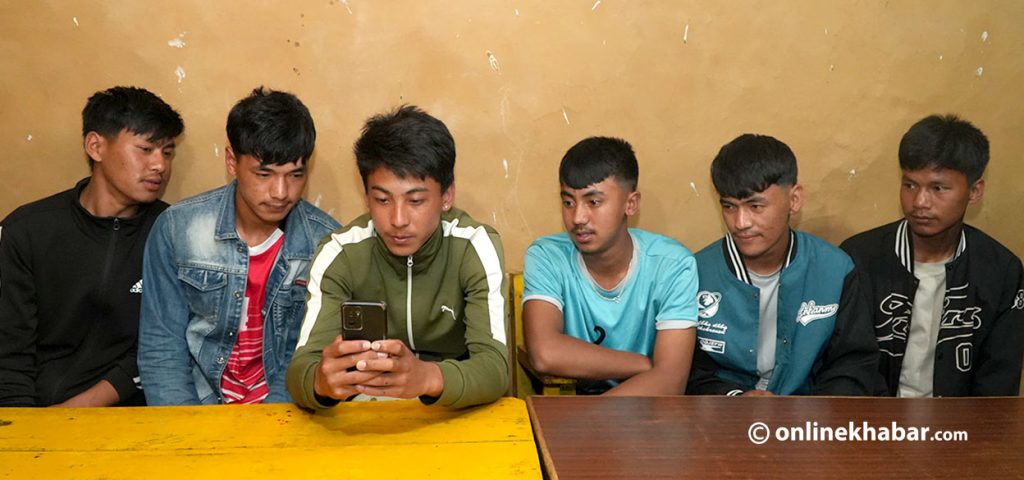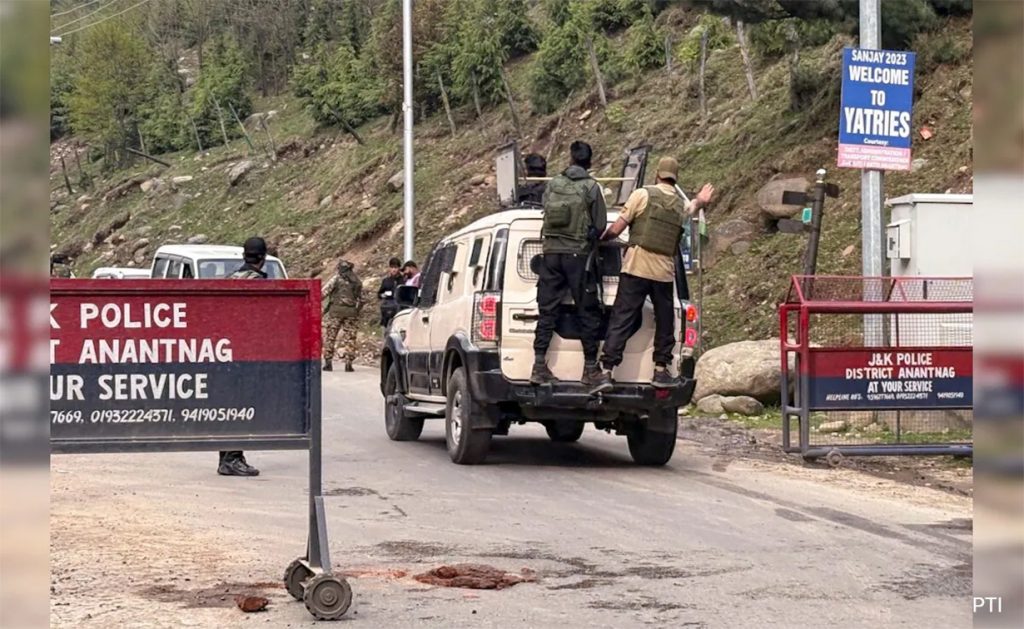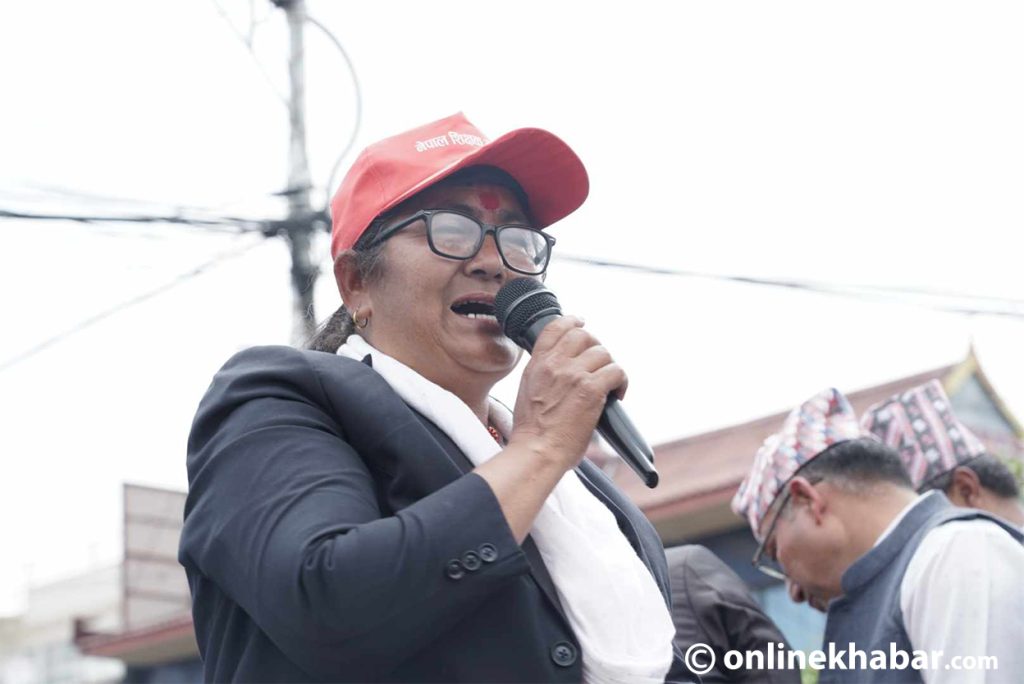
On May 3, 2019, President Bidhya Devi Bhandari was scheduled to be at the House of Representatives to present the annual policy and programme. Citing the VVIP arrival, Kathmandu’s traffic police halted all vehicular movement for half an hour in Maharajgunj, Durbarmarg, Singhadarbar and Baneshwor.
That created chaos in the city as there were traffic jams on all the major roads. Frustrated by how long they had to wait, people started to blow their horns at the traffic police as a sign of protest. This had happened before when Bhandari was travelling to an event, and the public had expressed its frustration in a similar manner.
This was a common affair during Bhandari’s tenure as the president of the country. Despite receiving significant criticism for her VVIP travel, neither she nor the government ever considered revising the security protocol for VVIPs and VIPs. What disappointed many was how they never even initiated a discussion on how it could be changed to make life easier for the general public.
When international dignitaries come to Nepal, things get even worse. Take the visit of Li Zhanshu in September 2022 as an example. When he was scheduled to travel, the entire valley was put on a standstill as no one was allowed to move. Even ambulances were seen stuck in traffic jams in the valley as the traffic police ensured the VVIP travel would not be affected in any way.
That was not the first time an ambulance was seen stuck on the road. On November 26, 2021, during the mass rally of the UML, a Red Cross ambulance carrying an 80-year-old patient was stuck for almost six hours.
Such incidents do not just occur during the travel of foreign guests, presidents, prime ministers, and top leaders. They are common during gatherings of high-profile individuals. This not only affects the general public, but it also is a major problem for the traffic police, says Mingmar Lama, former chief of the Metropolitan Traffic Police.
A recent study conducted by the Kathmandu Valley Traffic Police reveals that the movements of the top seven high-profile individuals, as ranked by the government, have caused significant traffic disruptions. According to the Chief of the Traffic Police Office, DIG Poshraj Pokharel, when they receive a notice from the Ministry of Home Affairs regarding the vehicular movement of VIPs, traffic lights are turned off to facilitate their travel.

One of the studies conducted by the Traffic Police in 2022 revealed that VIP and VVIP travel in Nepal frequently violate traffic rules without prior notification. According to this study, in September 2022 alone, VIP and VVIP travel breached traffic rules 1,259 times.
According to the report obtained by Onlinekhabar, then-President Bhandari violated traffic rules on 85 occasions across 18 different locations. Similarly, the vehicle of then-Vice President Nanda Kishor Pun was found to have violated traffic rules 18 times in 9 different places.
The vehicle of the then prime minister Sher Bahadur Deuba broke traffic rules 165 times in 25 locations. Similarly, the vehicle of the then-acting chief justice Deepak Kumar Karki violated traffic rules 80 times in 26 different locations. The vehicle of the then speaker of the House of Representatives Agni Prasad Sapkota breached traffic rules 123 times in 34 locations.
Between June and July, a total of 12,314 citizens were fined for violating traffic rules, with fines ranging from Rs 500 to Rs 2000. This data highlights a clear disparity in the enforcement of the law, as VIPs appear to go unpunished despite similar violations.
According to social researcher Kailash Rai, VIPs often disregard traffic rules because they perceive themselves as different and superior to others.
“VVIP travel is a problem for normal citizens. It is a culture that needs changing,” says Rai.
Mistakes on aviation
The story does not end here. VIPs have also been observed violating aviation security protocols. On January 1, when Pushpa Kamal Dahal travelled to Pokhara to inaugurate the newly constructed international airport, there was a breach in the aviation security protocol.
Dahal returned to Kathmandu at 3 pm, while other VIPs remained in Pokhara. By the time the inauguration program concluded, it was already late in the evening.
According to the Visual Flight Rule of the Civil Aviation Authority of Nepal, flights from Pokhara Airport could only take off until 5.23 pm. All flights after that time are deemed illegal.
Despite the presence of Pradeep Adhikari, director general of CAAN, in the airport, five flights took off later than the scheduled time as VIPs wanted to return to Kathmandu.
According to a record of Pokhara Regional International Airport obtained by Onlinekhabar, Shree Airlines’ flight 660 took off for Kathmandu at 5.25 pm, flight 616 at 5.28 pm, flight 608 at 5.31 pm, flight 620 at 5.42 pm and flight 654 at 5.44 pm. As per CAAN’s rules, all the flights are deemed illegal.
According to an official at CAAN, taking off and landing aircraft after the mentioned VFR time is serious negligence in terms of aviation safety.
VIPs don’t go to prison

It is said that under the rule of law, all are equal. However, this is only limited to the ordinary as VIPs get away with anything. The investigation of the fake Bhutanese refugee scam proves it.
Typically, the police use handcuffs when arresting individuals. However, in the cases of former deputy Prime Minister and Minister of Energy, Water Resources, and Irrigation, Top Bahadur Rayamajhi, former Home Minister Bal Krishna Khand, and Secretary Tek Narayan Pandey, handcuffs were not applied. Khand arrived at the police office in his private vehicle. Additionally, the police set up a separate detention room for them overnight.
Dan Bahadur Karki, SSP of District Police Range, Teku, vacated the DSP’s room for Khand. It is likely Khand used his influence to ensure his stay in the police station was more luxurious than others who were booked for the same crime.
On May 14, the police brought the accused in the case to the Kathmandu District Court to request permission to detain them for further investigation. During this court appearance, Indrajit Rai, one of the accused and the former security advisor of then-Home Minister Ram Bahadur Thapa, was not wearing handcuffs. In contrast, other individuals accused in the same case, such as Sanu Bhandari, Keshav Dulal, and others, were handcuffed.
Min Bahadur Gurung, owner of Bhatbhateni Supermarket, an accused in the Lalita Niwas land case has not gone to prison as he spends his time in custody at the Tribhuvan University Teaching Hospital. He’s not alone, former Election Commissioner Sudhir Kumar Shah and former head of Land Revenue Office, Dillibazar, Dharma Prasad Gautam also made their way to the Teaching Hospital.
The Security Management Procedure 2020 has classified VVIP and VIP. According to it, the top six government-ranked people including the president, vice-president, prime minister, chief justice, speaker of the House of Representatives and speaker of national assembly can obtain the facility of a VVIP.
The procedure has designated an additional 28 different categories of individuals as VIPs. They include the former president, former prime minister and vice prime minister, former chief justice and chief whip of the national assembly of nationally recognised political parties.
According to former education minister and member of parliament Shishir Khanal, VIPs should be categorised on the basis of security challenges and state-level designation. The facilities given to VVIPs or VIPs are being misused by those who want to show they are different and superior.
Although as a former minister, Khanal can get the security, he has not availed the facility.
“I do not have security threats. While going to the airport or any other place as well I do not claim for the facility of VIP,” Khanal told Onlinekhabar.

The VIP room of the airport is the most misused place. There are a lot of examples where the VIP room of an airport has been misused. On January 18, 2020, at 4 pm, a spiritual guru, Kalidas Maharaj was in the VIP room of Tribhuvan International Airport.
According to the Nepal Gazette, he is not eligible to use the VIP room at TIA. He was not the only one affected; senior police officers were also seen queuing up behind him.
Another serious issue is those who use VIP rooms do not have to go through security checks. An SP who has worked in the security office of TIA, says that the VIPs are not checked regularly at the entrance. Even if they are checked, the checks are different from regular security checks.
Rizwan Alam, a 30-year-old individual from Sunsari who is accused in a fraud case, was found using the VIP room at Tribhuvan International Airport and is currently on the run. This incident, which occurred on September 4, 2022, highlights the fact that stringent security checks are not consistently applied to VIPs. It’s suggested that he might have been apprehended during immigration procedures had he not used the VIP room.
According to the notice published in the Gazette, the president, vice president, prime minister, chief justice, speaker of the constituent assembly, and speaker of the parliament do not require security checking at the airport. Others, however, are not exempted. Fearing repercussions, the police dd not conduct security search on people who have access to the VIP room.
According to the Security Management Procedure 2020, there are 2009 VIPs in the country.
Shree Hari Aryal, the former president of Transparency International, says such a massive number of VIPs is a burden for the state.
“This is an exploitation of the state system,” he says. “We need to define clearly who can and cannot use the room. You cannot let anyone avail facilities of the VIP. It will cost the country a lot of money unnecessarily.”
According to the gazette, in the case of international VIPs, the decision to permit them to use VIP rooms will depend on the recommendation of the Ministry of Foreign Affairs. The guidelines state that a maximum of two individuals, along with one senior officer from the working office, are permitted to receive and see off the VIP. This is rarely followed, say CAAN officials.
Democracy vs VIP

The various incidents mentioned above highlight that even in a democracy, some VIPs appear to be flouting the law, reinforcing a perception of superiority.
According to former lawmaker Deepak Prakash, the undemocratic practice of elevating people’s representatives and administrative-level VIPs to a superior status was established by previous rulers who believed in their superiority over the general public.
According to Tri Ratna Manadar, head of the History Department at Tribhuvan University, the practice of taking a motorcade during travel started during the time of Chandra Shumsher Rana.
“He saw the Britishers doing it in India and demanded it be done to people like him in Nepal. It has not stopped since then,” says Manandhar.
Former education minister Khanal also admits that the VIP culture dated a long time back. He says such a culture builds hatred towards rulers and creates distance between citizens and the state.
“Overall, it weakens democracy,” says Khanal.
Political analyst Bhaskar Gautam also echoes Khanal.
“Due to such practice of VIPs, democracy has not been institutionalised in the country,” says Gautam. “The way those VIPs are breaching the law shows that they have a mindset that laws are not made for them.”


